If We Value Critical Thinking Why Are We Not Teaching It?
Read any day’s economic news and you’ll see both sides of ‘reality.’ The recession will continue for up to two more years, according to some. Others say there are bright spots—green shoots—pointing to a recovery by year-end.
“We’re in the midst of a crash,” says Warren Buffett. “We are on the road to recovery,” say White House economists.
What, exactly, is meant by a recession? A crash? Recovery? Prosperity? Who says so and why might we believe them?
On the subject of education, pundits say we are on a fast track to oblivion, OR on a slightly longer track toward redemption.
The business climate in Wisconsin is in the tank with nowhere to go but bust, OR it is destined to be reborn because of the ingenuity and grit of Midwest entrepreneurs.
Opposing sides face off on many of today’s issues. The importance of fatherhood. The rate of teen pregnancy. The necessity for light rail. The promise of embryonic stem cell research. The viability of the arts. The role of the church. The game-changing nature of technology. The power of fresh water ‘ownership.’
Each of these and many more issues has a pro and a con. A good face and a bad face. A foregone conclusion and a stupid assumption. Depending on which side of the political aisle you’re on, your views may be set in stone.
If ever there was a time to engage brain and close mouth, to educate ourselves on the issues of the day, and to recognize that hasty proclamations and actions often carry dire unintended consequences, it is now.
Critical thinking is not a skill we teach with any formality. Yet it is a characteristic of leaders that we expect. It’s time to examine both the expectation and the practice.
In order to expect that adults and leaders who influence our lives have the ability to think critically, we must begin to teach this skill at young ages.
When children are taught that they have the capability, freedom and, later, the responsibility to think carefully and choose behaviors that will yield positive outcomes, they gain a platform that supports critical thinking. Even better, they learn how to take responsibility for—and pride in—their thoughts and actions.
In teaching the discipline of thinking things through, imagining different consequences and implications of this decision or that, and helping to choose the best pathway, we are building important strength.
As young people learn that they are capable, that their decisions have consequences for themselves and others, and that they can choose one way over another, they build confidence in themselves. They learn to trust their capability, rather than deferring to some social or political mandate.
Should they be like this movie star or that athlete? Like this investment banker or that firefighter? Like this teacher or that ballerina?
No. They should invest wholeheartedly in the discovery of self and tap the best of their abilities to take them where they want to go. Let’s teach them how.
Categories: General Advice